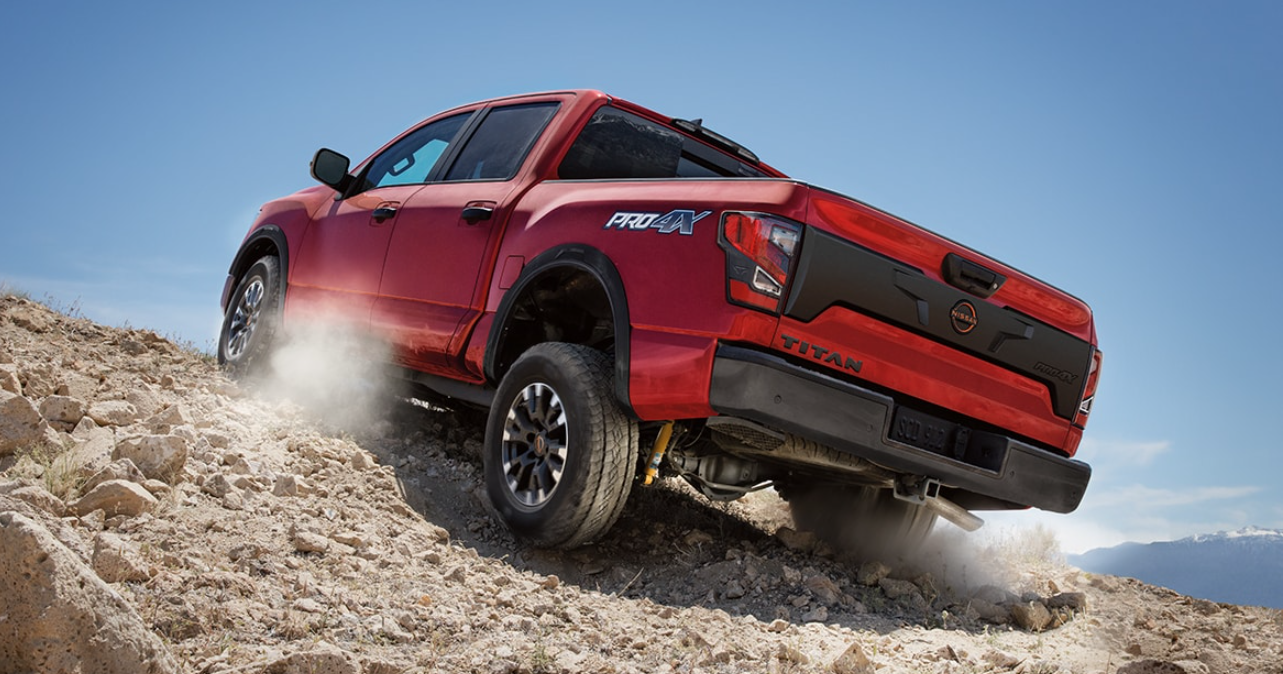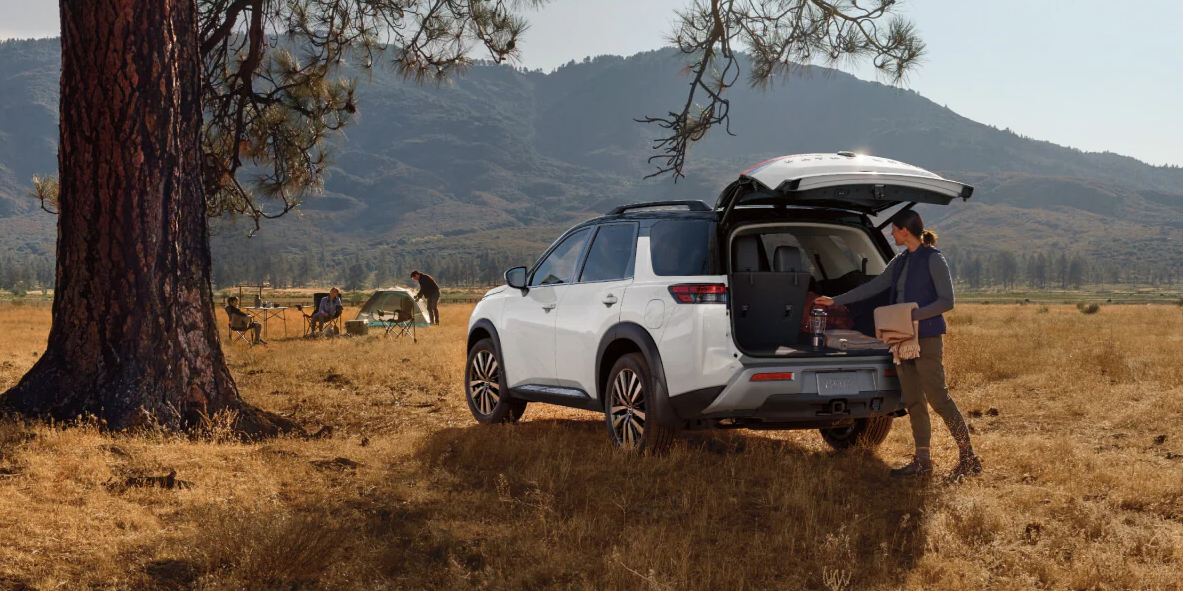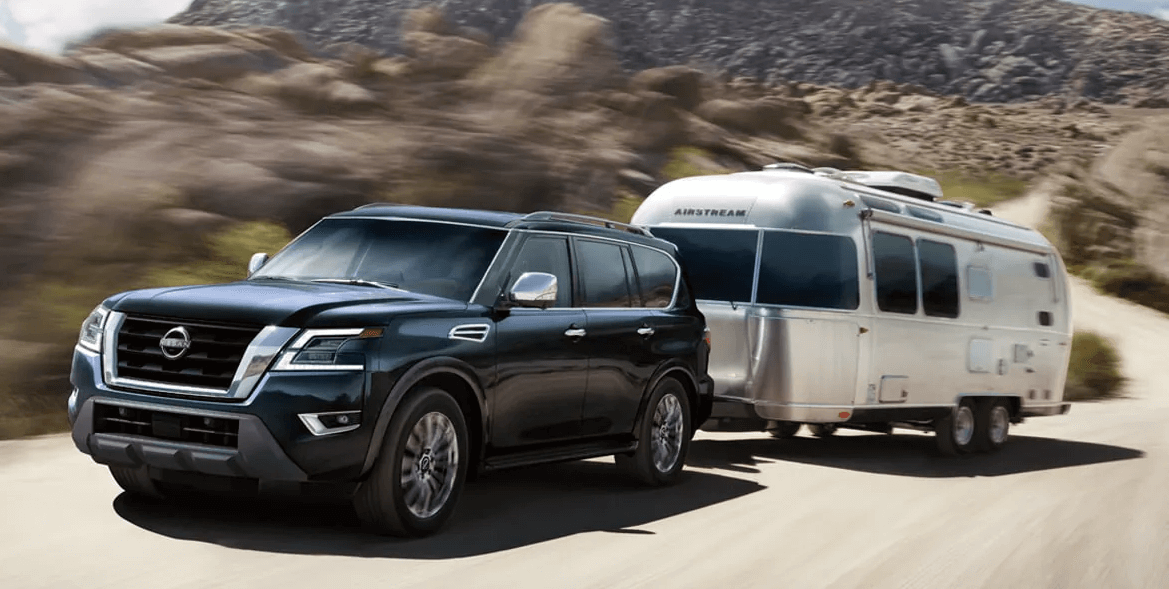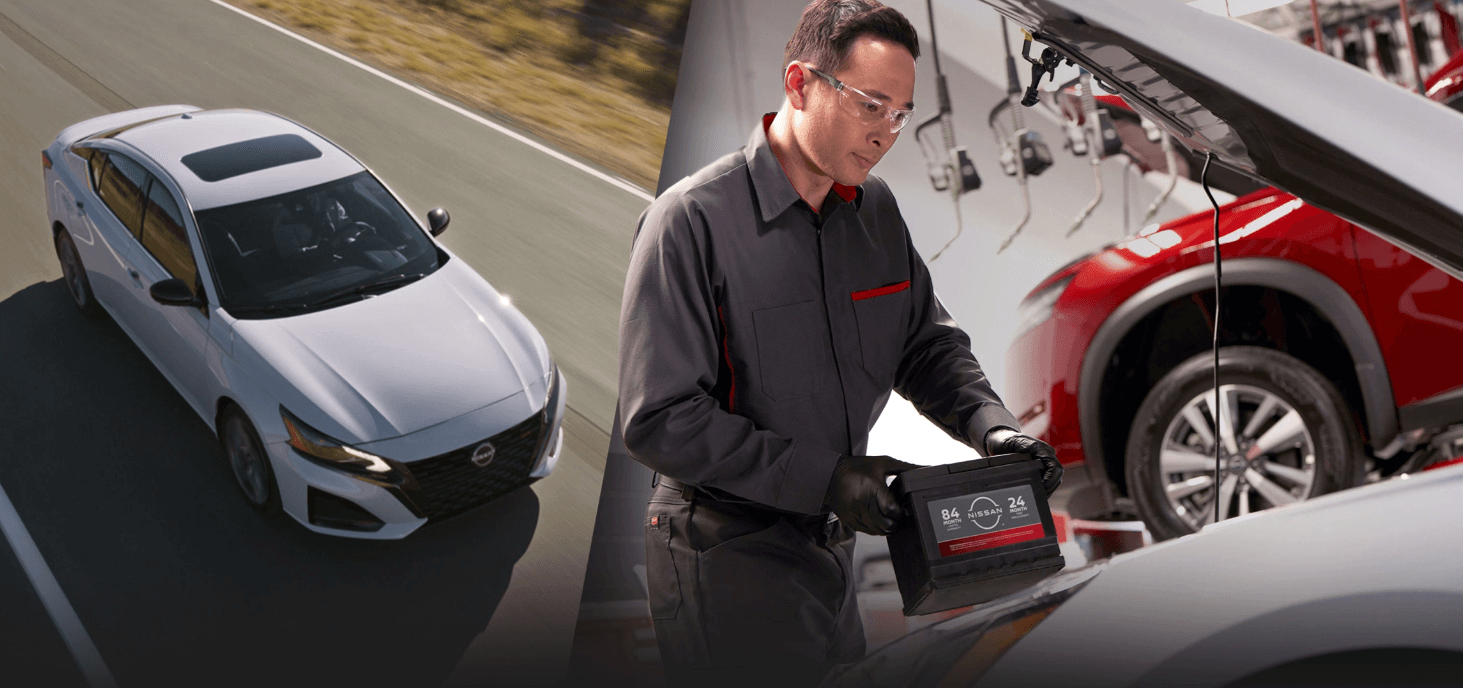Living in San Diego offers the perfect mix of coastal beauty and rugged landscapes, and for those who love adventure, having the right off-road vehicle is essential. From cruising the scenic trails of Anza-Borrego Desert to tackling the rugged terrains around Mission Trails Regional Park, the right vehicle can make all the difference in your outdoor adventures. San Diego residents know that choosing a versatile and capable off-road vehicle means balancing performance, comfort, and durability. Whether you're an off-road enthusiast or just enjoy weekend escapes into nature, selecting a vehicle that can handle both the city streets and tough terrain is crucial. In a city known for its active lifestyle, your off-road vehicle should reflect that same spirit of adaptability.
Versatile and Capable Off-Road Vehicles: Choosing the Right One for You
When it comes to off-road adventures, finding the right vehicle is essential to ensure you have the right blend of power, versatility, and capability. Whether you're planning a weekend getaway into the mountains, exploring trails, or just want a dependable vehicle for tackling rugged terrain, certain vehicles stand out. Let’s dive into three standout off-road vehicles: the Nissan Pathfinder Rock Creek, Nissan Frontier PRO-4X, and Nissan Titan PRO-4X. Each offers its own unique benefits depending on your specific off-roading needs.
Nissan Pathfinder Rock Creek
The Nissan Pathfinder Rock Creek offers a perfect mix of family-friendly functionality with serious off-road capability. For families who enjoy outdoor adventures, this vehicle is one of the most versatile choices in the midsize SUV category. While the Pathfinder has always been known for its roomy interior and ability to comfortably seat up to seven passengers, the Rock Creek edition takes things up a notch by offering features tailored for off-road excursions.
The Rock Creek trim brings to the table a lifted suspension, off-road tuned shocks, all-terrain tires, and a rugged exterior design that sets it apart from the standard Pathfinder models. It’s equipped with Intelligent 4x4 technology and seven drive modes, including terrain modes specifically designed for sand, snow, mud, and rock. This versatility allows it to handle a wide range of outdoor environments, from sandy beaches to rugged trails.
For families in need of both space and off-road capability, the Pathfinder Rock Creek provides ample cargo space, making it ideal for long trips or weekends in the wilderness. Its third-row seating also adds to the comfort for larger families, making sure there’s room for everyone without compromising on space for luggage or outdoor gear. However, the Pathfinder’s unibody construction, as opposed to the body-on-frame design used by many hardcore off-road vehicles, means that it might not be the best choice for extreme off-roading like rock crawling. Still, for those who want a reliable, comfortable ride that can handle the occasional off-road adventure, the Pathfinder Rock Creek is a strong contender. One thing to keep in mind is that despite its rugged upgrades, the Rock Creek is still an SUV built for family comfort. This means that it strikes a balance between being tough enough for light to moderate off-road situations while still maintaining the smooth handling and refined ride quality that families expect in their everyday SUV.
Nissan Frontier PRO-4X
For the adventurous individual or couple who doesn't need the size of a full SUV but still craves off-road performance, the Nissan Frontier PRO-4X is an ideal fit. This mid-size pickup truck is built with off-road driving in mind. Whether you're navigating rocky paths, muddy trails, or heading deep into the woods for a camping trip, the Frontier PRO-4X offers the kind of rugged reliability that outdoor enthusiasts look for in a truck.
The Frontier PRO-4X comes standard with 4x4, making it ready to tackle rough terrains from the moment you drive off the lot. Its Bilstein off-road performance shocks are designed to absorb the bumps and dips of rugged trails, keeping the ride smooth while maintaining control over uneven surfaces. The electronic locking rear differential provides better traction in difficult situations, and the all-terrain tires are designed to handle everything from rocks to mud.
When it comes to off-road technology, the Frontier PRO-4X is equipped with features like Hill Descent Control and Hill Start Assist, making it easier to navigate steep inclines and descents without putting too much strain on the driver. These features ensure that even less experienced off-roaders can tackle challenging terrain with confidence. Compared to larger trucks, the Frontier's smaller size makes it highly maneuverable, which is a significant advantage on narrow trails or in tighter off-road situations. However, as with most trucks, the ride comfort can be a bit stiffer compared to SUVs, especially on long drives on the highway or on smoother roads. The Frontier PRO-4X excels in off-road environments but is still a comfortable and versatile vehicle for everyday use.
Another thing to note is that the Frontier PRO-4X offers a great balance between off-road capability and practicality. It's powerful enough for serious outdoor adventures but compact enough to be used as a daily driver in more urban settings. It’s also a more affordable option compared to full-size trucks, making it accessible for those who want off-road performance without breaking the bank.
Nissan Titan PRO-4X
When you need maximum towing capacity and off-road capability in one powerful package, the Nissan Titan PRO-4X is the go-to option. The Titan PRO-4X is perfect for those who want a full-size truck that can handle the toughest trails while also being capable of towing heavy loads. This truck is built for serious work and serious play, offering a unique blend of power, durability, and off-road technology.
The Titan PRO-4X is equipped with a robust V8 engine that delivers enough power to tow heavy trailers, boats, or other large loads, even over rugged terrain. Like the Frontier PRO-4X, the Titan comes with Bilstein shocks, an electronic locking rear differential, skid plates to protect the undercarriage, and all-terrain tires. This makes it an incredibly capable off-roader that can handle everything from steep inclines to muddy, uneven ground.
One of the main advantages of the Titan PRO-4X is its towing capacity, which far exceeds what you would find in smaller trucks or SUVs. If you’re someone who regularly hauls trailers or equipment and needs a vehicle that can handle both towing and off-roading, the Titan PRO-4X is a great choice. The Titan’s power and off-road features make it ideal for those who need a vehicle that performs well in harsh conditions, whether it's on the job site or out in the wilderness.
One potential drawback is that, as a full-size truck, the Titan is less maneuverable than smaller trucks like the Frontier or SUVs like the Pathfinder. Navigating tight trails can be more challenging, and the larger size may feel cumbersome in more urban settings. However, for those who prioritize power and capability, the trade-off is worth it. Additionally, the Titan’s rugged construction doesn't come at the expense of comfort. The interior of the PRO-4X trim is designed with premium materials and advanced technology, ensuring that long rides are as comfortable as they are capable. Whether you’re towing heavy loads across the state or heading out on an off-road adventure, the Titan PRO-4X delivers top-tier performance.
Ultimately, if you’re someone who needs a combination of off-road capability and serious towing power, the Nissan Titan PRO-4X is hard to beat. While its larger size may not be for everyone, it provides unmatched power and capability in off-road environments, making it a top choice for outdoor enthusiasts and professionals alike.
To help you decide, ask yourself these questions:
You're right, we can dive deeper into those considerations! Here's a more extensive look at the questions to ask yourself when choosing a Nissan off-road vehicle:
About your off-roading:
What type of terrain will you be tackling? Be specific!
Light trails and gravel roads: This is the most common type of off-roading, and many SUVs with all-wheel drive can handle it. Think forest service roads, maintained trails in national parks, and unpaved roads to campsites.
Muddy tracks: Requires good ground clearance and potentially all-terrain tires. Consider how deep the mud gets and if you'll encounter any deep ruts.
Deep sand: Requires a vehicle with good ground clearance and four-wheel drive with low-range gearing. Tire pressure adjustments are often necessary for optimal traction. (Think beach driving or desert exploration.)
Rocky terrain: Demands excellent ground clearance, skid plates, and potentially larger tires with reinforced sidewalls to avoid punctures. Approach and departure angles become crucial for navigating steep obstacles.
Snow: Requires good ground clearance and a capable four-wheel-drive system. Consider features like winter tires and a locking differential for optimal traction in icy conditions.
Steep hills: Requires a vehicle with a powerful engine, low-range gearing, and good approach and departure angles. Hill descent control can be a helpful feature.
Water crossings: Requires careful consideration of water depth and potential hazards. A snorkel may be necessary for deep water crossings. Factor in the potential for damage to electrical components.
How often will you be going off-road?
Weekend warrior: If you only go off-road occasionally, you may not need the most extreme off-road features. A comfortable and practical vehicle for everyday driving might be a higher priority.
Frequent adventurer: If you're a dedicated off-roader, you'll want a vehicle with robust off-road capabilities and durability to withstand frequent use.
What level of off-road capability do you need?
Basic: All-wheel drive, decent ground clearance, and all-season tires might be sufficient for light off-roading.
Intermediate: Look for features like four-wheel drive with low-range gearing, off-road tuned suspension, skid plates, and all-terrain tires.
Advanced: Consider features like locking differentials, electronic traction control systems, specialized off-road tires, and recovery points for winching.
About your needs:
How many passengers do you need to accommodate? This will heavily influence the vehicle size and type. The Pathfinder is great for large families, while the Frontier might suit a couple or small family.
How much cargo space do you require? Consider the types of activities you'll be doing. Camping gear, sports equipment, and recovery gear can take up a lot of space. A truck bed offers versatility for hauling larger items.
Do you need to tow a trailer or boat? Check the towing capacity of each vehicle. The Titan excels in this area, while the Pathfinder and Frontier have respectable towing capacities for their classes.
What is your budget? Factor in not just the purchase price, but also the cost of fuel, insurance, and potential maintenance or repairs associated with off-road use.
What are your everyday driving needs? Consider fuel economy, comfort, and practicality for daily driving. A larger truck might be great off-road, but less ideal for city driving or parking.
About the vehicle itself:
What kind of driving experience are you looking for? A truck will generally offer a more rugged and truck-like experience, while an SUV will provide a more comfortable and car-like ride.
What features are important to you? Prioritize the features that matter most, whether it's advanced off-road technology, comfort and convenience features, safety features, or fuel efficiency.
Are you interested in any specific off-road accessories? Think about whether you'll want to add accessories like lift kits, winches, roof racks, off-road lighting, or upgraded bumpers.
By carefully considering these expanded questions, you can make a more informed decision and choose the Nissan off-road vehicle that will best serve your needs and enhance your adventures!
Find Your Perfect Off-Road Adventure Vehicle in San Diego
As you explore the diverse terrain surrounding San Diego, it's essential to choose a vehicle that meets your specific off-roading needs. Whether you're seeking power for conquering tough trails or advanced safety features for peace of mind on longer excursions, picking the right off-road vehicle ensures your adventures are both exciting and safe. The right vehicle will not only provide you with versatility but also with the reliability needed for every journey, from off-roading at Otay Mountain to enjoying scenic drives along the coast. Get ready to enjoy the best of both worlds with a vehicle that complements your adventurous lifestyle.
Living in San Diego means having access to both the stunning coastline and rugged desert landscapes, making an off-road vehicle essential for weekend adventures. Whether you're hitting the trails at Anza-Borrego Desert State Park or exploring the mountainous terrain of Otay Mountain, choosing the right vehicle is key. At Mossy Nissan, we understand the importance of versatility and capability in an off-road vehicle. From the latest in electric vehicle innovation, which you can explore in our EV's Inventory, to more rugged models, there's something for every adventurer.
Our dealership is committed to helping you find the best off-road vehicle to suit your lifestyle. Whether you're interested in a new or pre-owned model, we offer specials offers to help you make the most of your investment. If you're ready to start your search, visit us today and let our team guide you through the process, starting with finding your nearest location. Need flexible payment options? Take a look at our financing solutions to make driving off in your dream off-road vehicle easier than ever. Check out our Pre-Owned specials offers for fantastic deals on reliable used vehicles as well. Ready to take on your next adventure? Visit us at Mossy Nissan and let’s make it happen!
Please note that the availability of the Nissan Pathfinder Rock Creek, Nissan Frontier PRO-4X, and Nissan Titan PRO-4X models mentioned in this article may vary. We encourage you to give us a call or visit our showroom to confirm the current availability of these vehicles. Our team is happy to assist you with any questions or to help you schedule a test drive of your preferred model. Let’s make sure you find the perfect vehicle for your adventures!







































